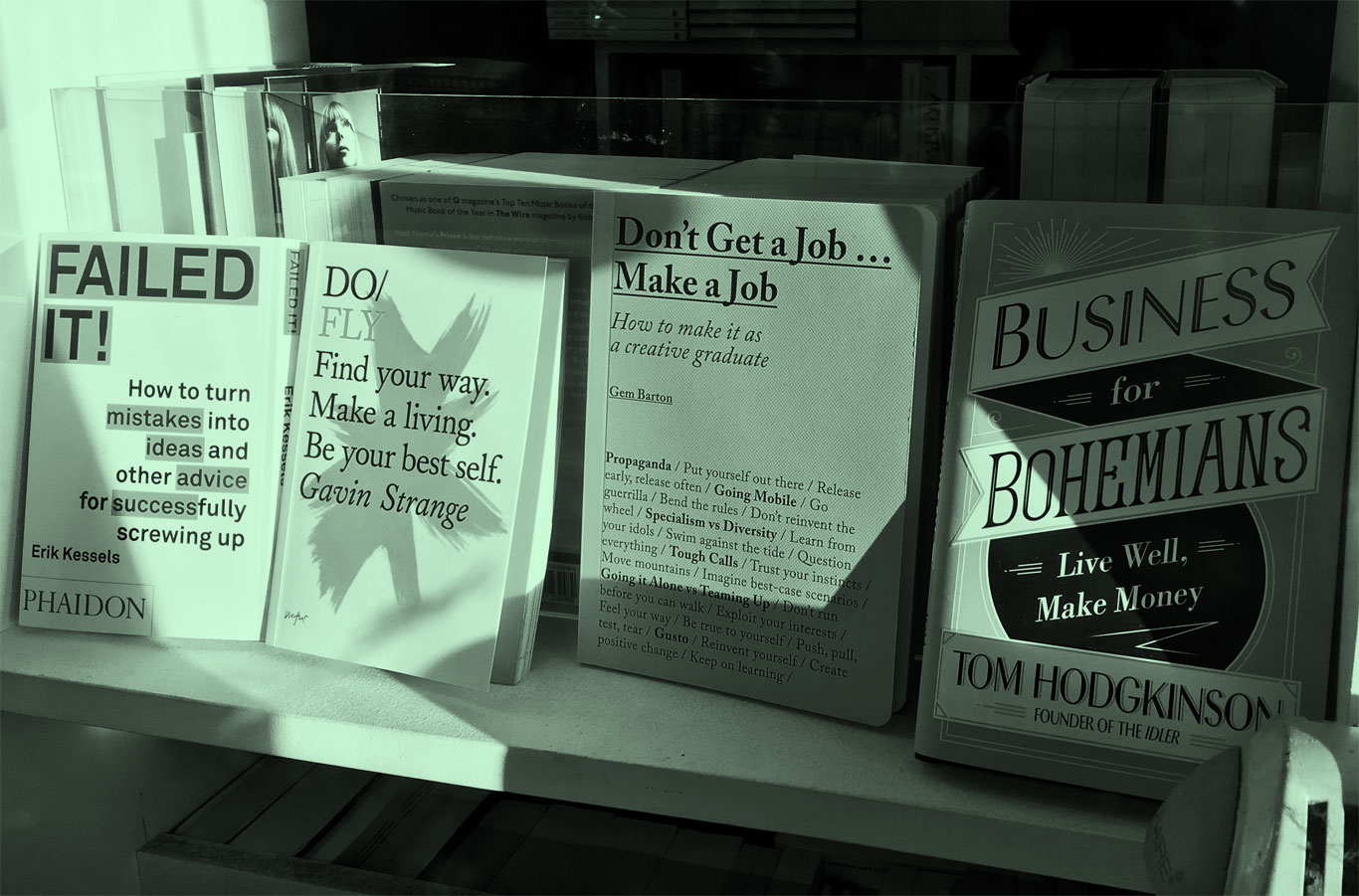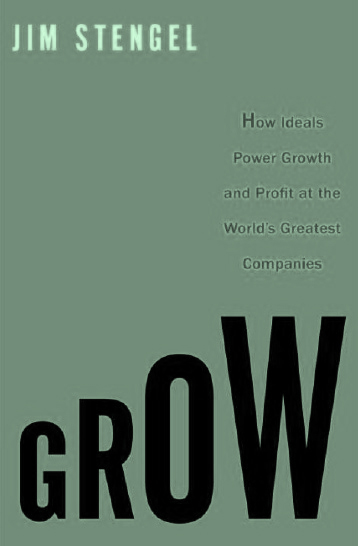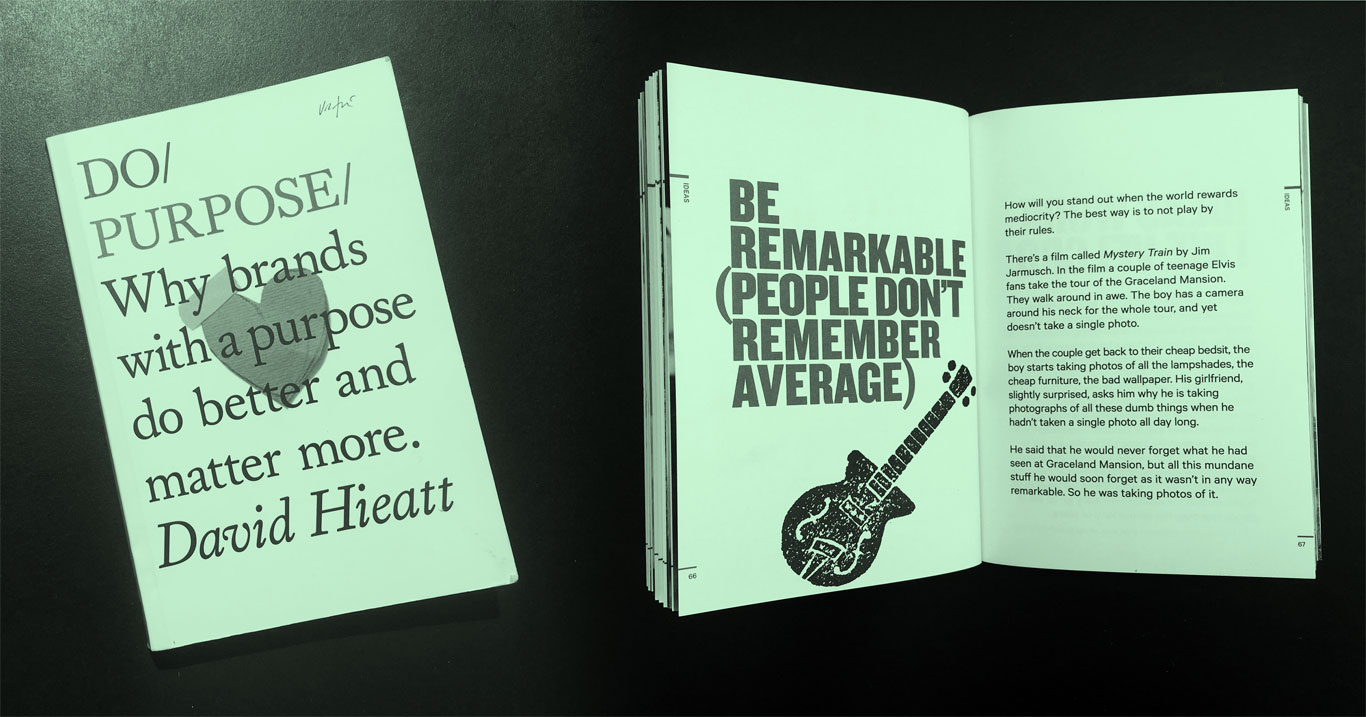“Find your love”, “Be driven by a higher ideal”, “The sky’s the limit”… These smoochy words aren’t a pep-talk from a well-meaning, high-fiving parent. To find these – and many more like them – go to a bookshop. And while you might think you’re heading straight for the self-help section (via a pit-stop to buy some crystals), you’re not. You’re going to the business section. And you’re going to find your purpose.
Businesses – especially big ones like P&G and Unilever – like to talk about purpose. A lot. It’s not anti-dandruff shampoo, ice cream or toilet cleaner, oh no: it’s “improving the lives of the world’s consumers” (that’s P&G) or making “sustainable living commonplace” (that’ll be Unilever). At the same time, the idea of doing something you love and being “about more than profit” has trickled down from corporate boardrooms to become a mantra for people who dream about running their own different kind of business.

Much of the case for brand purposes comes from one book: “Grow” by Jim Stengel. According to Stengel, “businesses driven by a higher ideal, a higher purpose, outperform their competition by a wide margin”.

Much of the case for brand purposes comes from one book: “Grow” by Jim Stengel.
In April, Richard Shotton from Manning Gottlieb OMD wrote a good piece about the flimsy statistics behind Stengel’s claims. As Shotton points out, like many business books on the shelf, Stengel pre-selects already successful companies and gets them to fit his rationale. On top of that, what Stengel says counts as a brand purpose is elastic, and stretched so much it becomes meaningless. Moet and Chandon, for example, “exists to transform occasions into celebrations”. Balloons are livid.
Yet, for some reason, a lot of right-minded people attach as much credibility to a “brand purpose” as Prince Charles does to homeopathy. Why? Maybe the answer lies in the self-help section of a bookshop after all. Doing something with a purpose behind it – however flabby that purpose might be – makes us feel better. A marketing plan for deodorants takes on more of a worthwhile glow if it’s a marketing plan for creating a better future… As Shotton says, “Many planners are so desperate for [a brand’s] ethical angle they don’t ask whether the evidence is robust”.

What’s possibly given brand purposes credibility is that they’ve become associated with start-ups. And as we all know, start-ups are more nimble and supposedly “disruptive” than their bigger, heavy-with-process counterparts (which is why you’ll find lots of corporations telling their staff to be “more like a start-up” or setting up departments whose remit is exactly that). But they’re also bound by their own self-help myths, which start with the alluring pitch: give up the day job and do something you love instead.
Start-ups have their own self-help myths, which start with the alluring pitch: give up the day job and do something you love instead.
Scratch the surface beneath most start-ups, though, and you often find their business is nothing more than another soft drink/pair of shoes/app with the word “craft” in front of it. Or they’re simply giving a fraction of their profits to charity. It’s also just as easy to find many a successful disruptive company that seems to do just fine without much love in its purpose (just ask the people who work at Uber and Deliveroo). And it’s not as if Unilever has turned into a profit-sharing co-operative, but you’d think so based on the statistics (heavily influenced by Stengel’s book) the marketing press republish from Unilever’s PR team.
Purposes are like mission statements that have been to a self-improvement seminar. Big companies use them to be like start-ups, and to assure us they’re about much more than making money. Entrepreneurs use them as a way to persuade themselves they’re following a higher calling.
We get calls most weeks from ex-hedge fund managers who need help crafting the purpose for their new lifestyle brand, so could we meet up in Notting Hill to talk about it? They might as well say “Can you tell me what the point of my business is?”
But that’s the million dollar question that no amount of positive thinking can answer.
